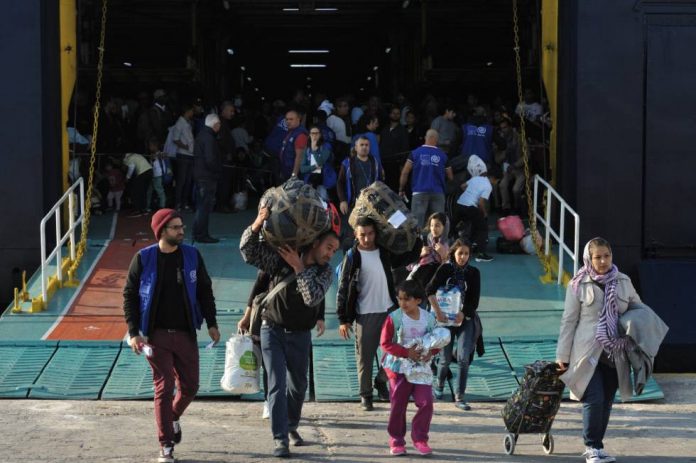
Poland, Hungary and Czech Republic are one step away from being condemned by the european Court of Justice for its refusal to participate in the system of relocation of refugees adopted by the European Union in 2015 to provide assistance to Italy and Greece, countries that faced massive influx of migrants.
In a blunt provisional ruling published on Thursday, Eleanor Sharpston, one of the Advocates-general of the european Court, dismounted, one after the other the arguments put forward by the three countries tried for refusing to collaborate with a solidarity mechanism that had been put in place in circumstances as exceptional as the immigration crisis of 2015.
MORE INFORMATION
The Supreme condemnation of the State not to cover the share of refugees in the EU The European Union strengthens the hard-line on immigration policy, The Commission confirmed the fines as a deterrent, not to welcome refugees
The trial pits the European Commission with the three countries that refused to cooperate in the relocation of 160,000 asylum seekers with a system of mandatory quotas, which failed in great part. The importance of the dispute lies not in the particular case of this mechanism, already expired, but in the interest of the Commission to create a jurisprudence on the obligation of all member States to collaborate in a sharing system that was launched on the basis of article 78 of the Treaty. This article provides for the possibility of adopting exceptional measures in the event that a member State face “an emergency situation characterised by a sudden inflow of nationals of third countries”.
The final judgment will take weeks to arrive, but if the judges follow the reasoning of the Attorney General (as is often the case), Poland, Hungary and the Czech Republic will be denied their right to not participate in the deal by invoking a possible impact on public safety or the difficulties to verify the identity and risk of asylum-seekers. The Attorney general considered all of these arguments are baseless and remember that, in any case, the three countries should at least have communicated how many refugees they were willing to embrace even though, if this is the case, you would not have completed the quota.
But Sharpston, a british national, seems to want to go away from one’s own record in itself. And take advantage of the that can be one of his last opinions on the Court before the Brexit, to make a power argument in favour of the maintenance of the rule of law and the legal system of the Union in an opinion that affects, precisely, in three countries suspected of infringing with facility the fundamental rules of the club.
The rule of law, asserts Sharpston, “implies the fulfillment of legal obligations that are incumbent to each one. To disobey these obligations because they are inconvenient or unpopular (…) constitutes a dangerous step toward the breakdown of the ordered society structured and governed by the rule of law.”
















